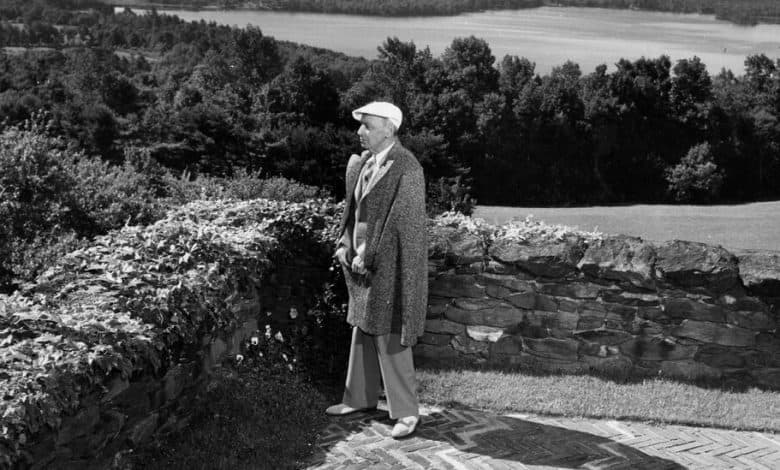The Conductor Who Bent Music History to His Will

There is a passage in Serge Koussevitzky’s final recording of Tchaikovsky’s Fourth Symphony that some listeners might hear in horror, but others with a degree of awe.
He recorded the piece in 1949 with the Boston Symphony Orchestra, during the last weeks of his 25 years as its music director. About two minutes from the end of the first movement, the symphony is doing its best to keep calm. Flutes and clarinets arc gently, then oboes and horns; the cellos and basses stay constant beneath the nervous skittering of the other strings.
But then the bass begins to pull down. Suddenly the higher strings start to dominate, as anxiety takes hold; that sinking bass becomes inescapable. Tchaikovsky asks for a crescendo. Koussevitzky gives him that, but he also accelerates dramatically into the darkness, as fateful motifs blare. A few seconds later, just as the music seems ready to meet its destiny, Koussevitzky decides to make us wait. Fanfares blaze, entirely out of tempo, only to announce an unwritten silence. And then, savagery. As Tchaikovsky himself described this coda, “no haven exists.”
Tchaikovsky: Symphony No.4, first movement
Boston Symphony Orchestra (Pristine)
This is the kind of moment that, in the wrong hands, gives Tchaikovsky a bad name. Koussevitzky was hardly alone in taking liberties with the composer, but many other conductors have at least tried to contain the drama here, rather than let hysteria hang out. Even Wilhelm Furtwängler, who like Koussevitzky sought to follow the spirit implied in a score as much as its explicit text, stayed truer to what Tchaikovsky actually wrote.
But in Koussevitzky’s hands, the effect is shattering. This Tchaikovsky Fourth is irresistible evidence of just how much he and the Boston Symphony achieved in their quarter of a century together. Conviction resounds. The playing is virtuosic, yet not for the sake of display. Every phrase sings. There is formidable power and intensity, but also enough elegance that it feels apt for the writer Harris Goldsmith to have described the Boston strings as “one of the hedonistic delights of Western civilization.” In 1944, the New York Times critic Olin Downes said that Koussevitzky had refined his orchestra into “the most highly perfected and sensitized symphony ensemble in the world.”